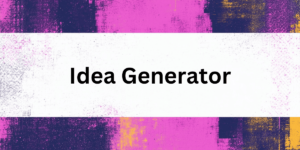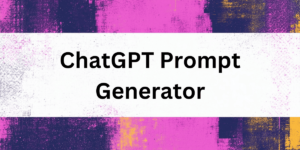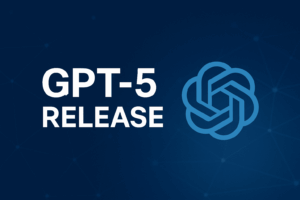Would you like to find out more about the differences between Llama 2 and GPT-4? These two language models are currently the hottest topics in the world of text generation. Both models have their advantages and disadvantages in terms of performance, precision and applications. In this blog post, we will take a closer look at the Llama 2 vs GPT-4 meta models and examine which model is more suitable for creating text content.
Llama 2 vs GPT-4 - An analysis of the efficiency and precision of language models
When it comes to language models, Llama 2 and GPT-4 are two of the best-known models on the market. Both have their strengths and areas of application, but which one is better in terms of efficiency and precision? In this article, we will make a comparison between these two models to see which one comes out on top. We will first take a closer look at Llama 2 and examine its functions and areas of application.
Presentation of Llama 2: functions, strengths and areas of application

Llama2 is an advanced open-source language model developed by Meta AI that can generate human-like text and can be used in various areas such as content creation, translation and chatbots. It offers high accuracy and improved word processing performance compared to other language models.
Functions of Llama 2:
- Use of an extensive data structure for highly accurate text generation
- Can generate human-like texts on the basis of the trained model
- Uses technology and advances from OpenAI and Meta AI
- Based on the successes and strengths of previous models such as LLM
- Available as an open source model
Strengths of Llama 2:
- High performance and accuracy compared to other models such as GPT-4
- Advanced and comprehensive data structure ensures better content
- Can generate complex, human-like speech
- Continuous further development due to the open source nature of the model
- Development and support from renowned technology companies (Meta AI)
Areas of application of Llama 2:
- Generating content for websites, blogs or other media
- Use in translation tools for higher accuracy and better understanding of human language
- Use in chatbots to improve conversation and interaction
- Can be used for various language models and word processing functions
- Application in artificial intelligence for research and development.
Presentation of GPT-4: functions, strengths and areas of application

GPT-4 is an advanced language model developed by OpenAI that is capable of generating human-like texts. It is used in various areas such as content creation, translation and chatbots, and is known for its high accuracy and quality in text processing.
Functions of GPT-4:
- Uses deep learning algorithms for text generation and processing
- Can generate human-like text in different styles
- Based on a massive amount of data for accurate training of the model
- Available through the advanced AI company OpenAI
Strengths of GPT-4:
- High ability to generalize due to complex learning algorithms
- Can produce coherent and high-quality texts in human-like language
- Able to answer questions, translate texts and even generate artistic content
Areas of application for GPT-4:
- Automated content creation for blogs, articles and more
- Improving the accuracy and efficiency of translation tools
- Use in chatbots to improve interaction and conversation
- Application in artificial intelligence, machine learning and data analysis for research and development
- Support for creative processes through automatic text generation
Llama 2 vs GPT-4 - Efficiency
A comparison of the efficiency of Llama 2 and GPT-4 based on various criteria shows that both models perform very well in terms of performance and text processing. However, Llama 2 has better accuracy than its predecessor model LLM and can therefore respond even more precisely to human speech. Another advantage of Llama 2 is its open source structure, which allows developers to customize the model according to their needs. GPT-4, on the other hand, has a larger data volume and better application areas than GPT-3, which gives it a head start in processing content. Overall, it can be said that both models are extremely effective and can play to their particular strengths depending on the area of application.
Dimension
Model Size
Max Content Lenght
Model Versions
Modalities
Llama 2 (Open- source)
7B parameters
13B parameters
70B parameters
4,096 tokens
Llama 2
Llama 2 Chat
Code Llama
Text
GPT-4 (Closed -source)
~1.76T parameters
8,192 tokens
32,768 tokens
GPT-4
Text & Image
Llama 2 vs GPT-4 - Efficiency - Precision
A comparison of the precision of the Llama 2 and GPT-4 based on various criteria shows that both models have their strengths and weaknesses. While Llama 2 with its meta-learning function achieves a higher accuracy in the prediction of texts, GPT-4 scores with a higher performance in the processing of large amounts of data. The application areas of both models are diverse: Llama 2 is particularly suitable for generating content for voice assistants or chatbots, while GPT-4 is more suitable for analyzing large text data sets in a scientific environment.
Compared to its predecessor GPT-3, the new GPT-4 model has a number of innovations, such as improved language understanding thanks to a new training procedure. Ultimately, the choice between the two models depends on which is better suited to the specific application: If you need maximum precision and are prepared to invest a little more time in training the model, opt for Llama 2. If you need fast results with large amounts of data and place less value on absolute precision, GPT-4 is the better choice.
Evaluation of the overall result: Which model is more efficient AND more precise?
Having looked at Llama 2 and GPT-4 in detail in the previous sections and compared their efficiency and precision based on various criteria, it is now time to evaluate the overall result. Both models have shown their strengths and weaknesses and it is difficult to name clear winners. However, there are a few points in Llama 2’s favor: Firstly, it is an open source model, which means that it is supported by a broad community.
In addition, Llama 2 has shown better performance than GPT-4 in generating texts with limited amounts of data due to its meta-learning capabilities. On the other hand, by using GPT-3 data, GPT-4 has achieved a higher accuracy than Llama 2 in certain application areas such as writing human-sounding texts or translating between different languages. Ultimately, the choice of model depends on what type of content you want to generate and what data you have available. So there is no “better” model per se – both can deliver excellent results depending on the requirements.
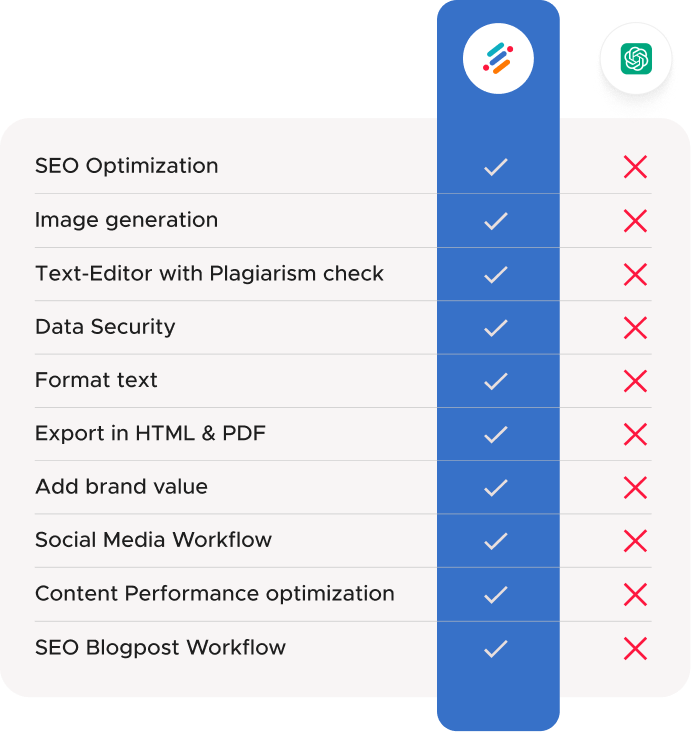
Llama 2 Alternative: GPT-4o neuroflash
Use neuroflash and experience live how GPT-3.5 and GPT-4o can revolutionize your content creation. Click into the future of AI content now and let your brand flourish with the powerful features of neuroflash! Whether you’re generating impressive blog content or engaging voice assistant conversations, we at neuroflash have the best AI content suite to achieve your goals.
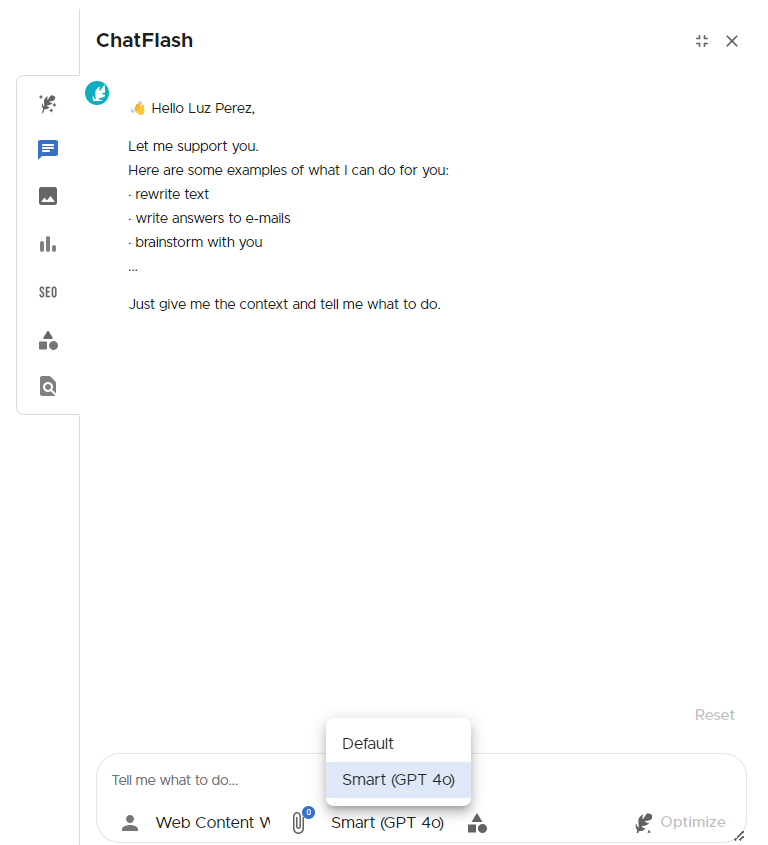
GPT-3.5/GPT-4o are autoregressive language models developed and introduced by OpenAI. They are based on a gigantic neural network and can independently add and compose text with minimal input. GPT is the largest Natural Language Processing Transformer (NLP) that can accurately and effectively reproduce human thought and reasoning patterns. The texts generated are so well written that readers can no longer distinguish them from human-written texts.
With our ready-made workflows, our powerful AI text editor, our customizable AI chatbot and our team feature, you save time, work more efficiently and reach new creative heights with us. Simply register for free and see for yourself!
Conclusion
After looking in detail at the Llama 2 vs GPT-4 language models and comparing their efficiency and precision, we can make some recommendations for their use. First of all, it should be noted that both models deliver excellent performance and can be very useful in many areas of application. However, when it comes to generating texts with the highest accuracy, GPT-4 seems to have the edge. This is mainly due to its impressive performance in processing large amounts of data and its ability to produce human-like speech.
However, Llama 2 also has its strengths, especially when it comes to generating content in more specialized application areas. As it is an open source model, Llama 2 also offers greater flexibility in terms of customization.
Overall, it can be said that both Llama 2 and GPT-4 may be more suitable depending on the application. It is important to carefully examine individual needs and select the model that best helps to solve the problem in question. In conclusion, it can be said: Both models are powerful and offer many possibilities for the automation of language processes – they should definitely be considered!




